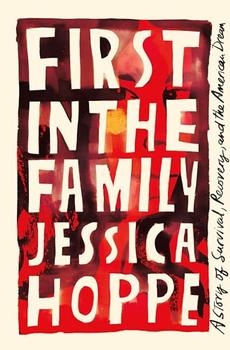Book Club Discussion Questions
Want to participate in our book club? Join BookBrowse and get free books to discuss!
Please be aware that this discussion guide will contain spoilers!
-
First in the Family, the title of the book, can mean many things. What was Jessica the first in her family to do? What are some things you were first in your family to do?
-
On page 11, Jessica uses the word desalmado. What does this word mean? How does Jessica use it to describe addiction? How would you describe addiction?
-
Jessica's first addiction wasn't alcohol. What was it? What do you identify as your first
addiction, if any?
-
Jessica discusses the impact of the "American Dream" and the ways in which it affects
immigrants. What is the American Dream? In what ways might the American Dream
be helpful or harmful?
-
In the US, we often think of addiction as an individual problem. Is this the way Jessica
thinks of it? If not, how so?
-
Jessica talks about the "AA MFA." What does this refer to? How is narrative part of the
healing process?
-
As much as AA was helpful, Jessica also became aware of its limitations. What are some of the ways recovery programs might better serve BIPOC who are struggling with
addiction?
-
What are some of the Indigenous traditions of recovery that Jessica discusses? What
can we learn from them?
-
On page 231, Jessica describes how she reclaimed the AA Serenity Prayer, making a
quote by Angela Davis her new mantra: "I'm no longer accepting the things I cannot
change. I'm changing the things I cannot accept." How would you respond to this call
to action?
-
First in the Family offers a blueprint for liberation practice: By understanding the way a drug operates within our bodies, it can help us see how systems of domination are at work in our lives. How have dominant cultural narratives such as gender norms, misogyny, and white supremacy affected how you see yourself? How can we establish a daily practice to externalize the harmful narratives we've internalized?
-
Jessica encourages us to look at the language we use to discuss substance use disorder
with our families. How would you navigate these difficult family discussions? What did
you take away from Jessica's discussions with her family?
-
In Chapter 28, Jessica describes the medical correlation between racialized trauma and
chronic illness. Has racial trauma or chronic illness impacted your family and communities? If so, what can you do to interrupt the cycle of harm and embark on a
path to recovery?
-
Jessica credits one poignant question for saving her life: Do you know what's happening
to you? How would you answer that question today?
-
On page 4, Jessica welcomes the reader to the page by declaring her intention: "I'm
writing this book not because I believe my story can save you but because I want you
to know: yours will." Will you share your story with us?
Unless otherwise stated, this discussion guide is reprinted with the permission of Flatiron Books. Any page references refer to a USA edition of the book, usually the trade paperback version, and may vary in other editions.
